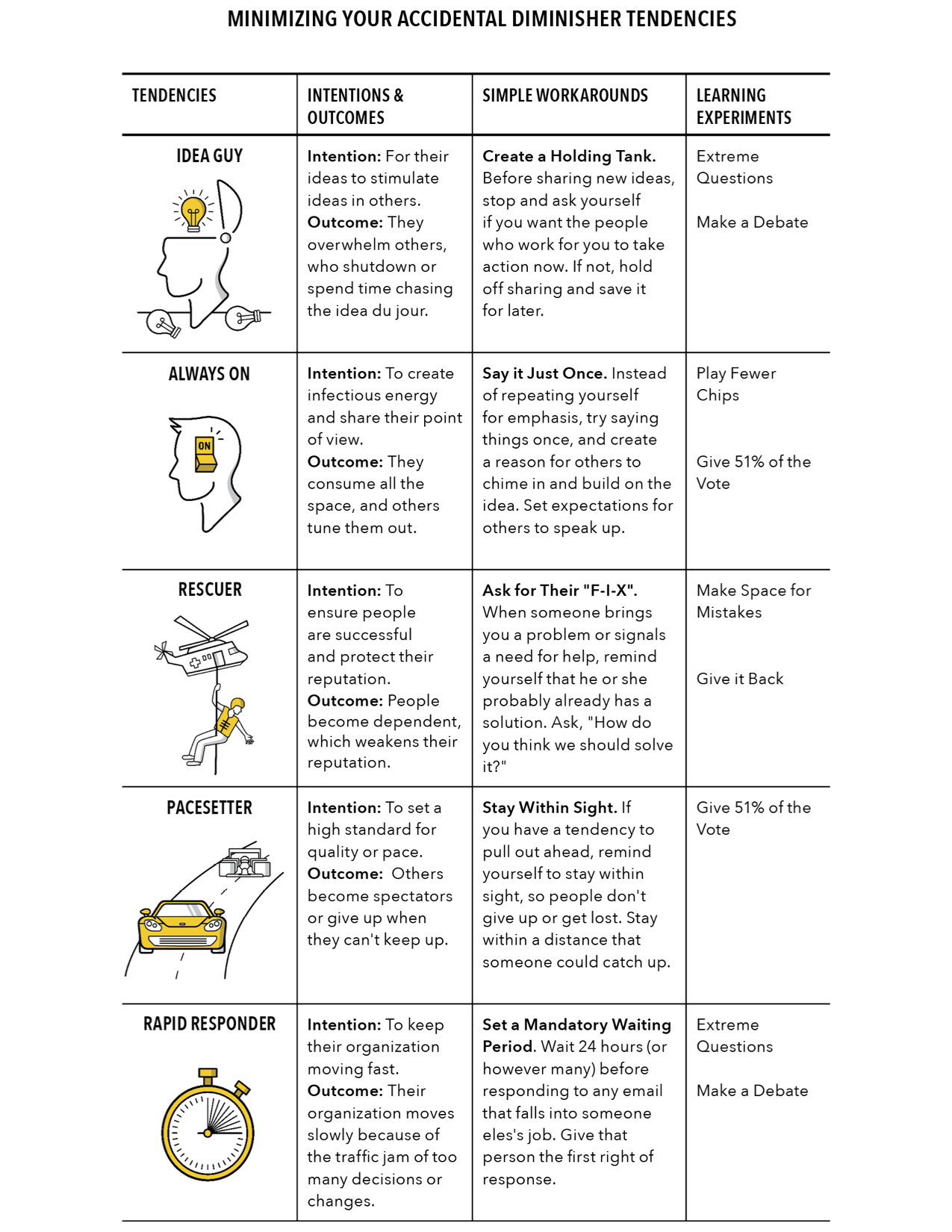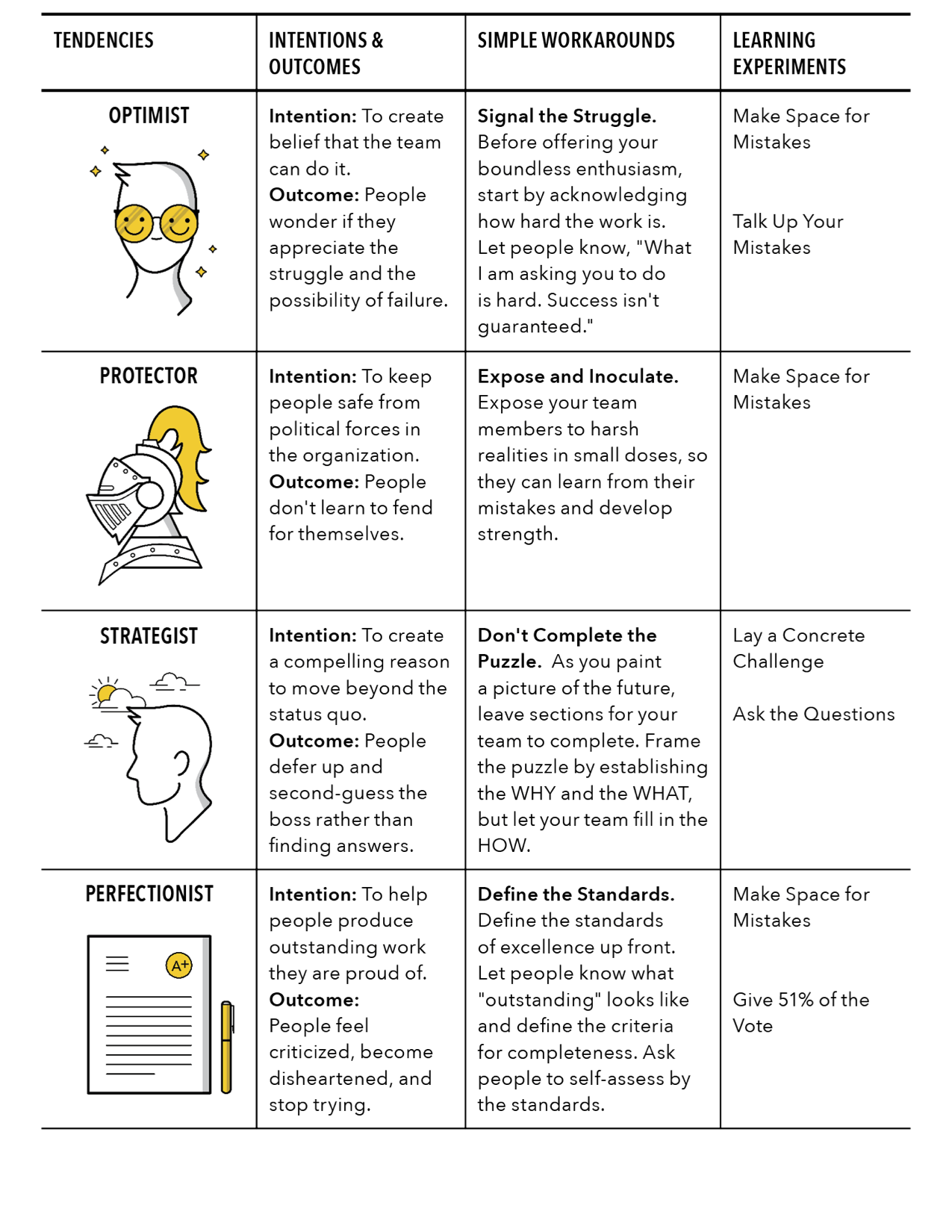I recently finished reading Multipliers, by Liz Wiseman, and wanted to share some of my learnings and thoughts from the book.
Multipliers does a great job of introducing a common language for describing the effectiveness of a leadership style: “Diminishers” on one end of the spectrum, “Multipliers” on the other end. The names describe the net effect of a person’s behaviours and tendencies, whether it’s for their peers, colleagues, direct/indirect reports, managers, and anyone else in the organization.
The book is very focused on managers and leaders in organizations (especially those in sales or marketing), but I think it’s a valuable read for practically anyone as there are plenty of behaviours and tendencies that will affect your work, or your team, regardless of position, and it’s great to be able to identify and label those in our own selves.
One of the most valuable things that I learned about, personally speaking, is the concept of being an “Accidental Diminisher”. Where “Diminishers” have some very negative behaviours and tendencies, like micromanagement and empire building, Accidental Diminishers are people who have very good intentions and are doing their best to be Multipliers but are instead doing something (or in my case, many things!) that have diminishing results to the team and organization.
I shared these images, which describes the 9 tendencies of an Accidental Diminisher, with some people on the team recently:


It’s fairly easy to identify many of these behaviours in myself, in my day-to-day work life, and I never thought that any of these behaviours would have a negative effect on my peers and colleagues.
I think that in the tech world, we can be a very competitive bunch, which sometimes creates organizations and people that are tremendously toxic, because we gotta Get Shit Done™.
I’m lucky in that I work for an organization has a very positive culture, but also doesn’t tolerate toxic behaviour. That said, it was fairly eye-opening to realize that some of the behaviours that I would have considered “setting a good example” or “being a good role model” could be perceived in a negative light by those around you.
As a personal example, I notice if one of my coworkers is getting buried by the amount of work we have on our plates, and I will volunteer to jump in and help them out “to be a team player”. This desire to help comes from a good place (in my eyes), but I would definitely be exhibiting “Rescuer” tendencies in this case. In my head, I’m helping my team drive towards success, but I may very well be creating a dependency, or undermining the efforts of others. I still believe it’s important to help, but more in a supporting role and keeping the ownership squarely in the hands of those I choose to help.
I think it’s important to have as much awareness as possible, when it comes to understanding how your actions are perceived, as an individual, as a team member, and as a leader. Regardless of your position in an organization, you can have real impact, positive and negative, with just your actions.
Multipliers is a great (and easy!) read that has a lot of useful stories that really drive home the differences between Multipliers and Diminishers, as well as in-between concepts like Accidental Diminishers, and made me much more aware of how it is I conduct myself.
If you end up checking it out, it’d be great to hear your thoughts on the concepts from the book, so hit me up on Twitter or LinkedIn and say hello!